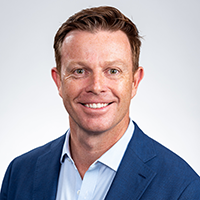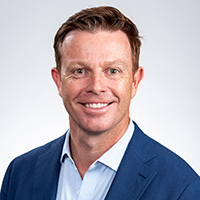
An Easy Way to Lose Sight of Critical Risks
 Let me ask you a question…
Let me ask you a question…
How does the executive team at your biggest competitor think about their future? Are they fixated on asset growth or loan quality? Gathering low-cost deposits? Improving their technology to accelerate the digital delivery of new products? Finding and training new talent?
The answers don’t need to be immediate or precise. But we tend to fixate on the issues in front of us and ignore what’s happening right outside our door, even if the latter issues are just as important.
Yet, any leader worth their weight in stock certificates will say that taking the time to dig into and learn about other businesses, even those in unrelated industries, is time well spent.
Regular readers of Bank Director know that executives and experienced outside directors prize efficiency, prudence and smart capital allocation in their bank’s dealings.
But here’s the thing: Your biggest—and most formidable—competitors strive for the same objectives.
So when we talk about trending topics at this year’s Bank Audit and Risk Committees Conference, hosted by Bank Director in Chicago from June 10-12, we do so with an eye not just to the internal challenges faced by your institution but on the external pressures as well.
As we prepare to host 317 women and men from banks across the country, let me state the obvious: Risk is no stranger to a bank’s officers or directors. Indeed, the core business of banking revolves around risk management—interest rate risk, credit risk, operational risk.
Given this, few would dispute the importance of the audit committee to appraise a bank’s business practices, or of the risk committee to identify potential hazards that could imperil an institution.
Banks must stay vigilant, even as they struggle to respond to the demands of the digital revolution and heightened customer expectations. I can’t overstate the importance of audit and risk committees keeping pace with the disruptive technological transformation of the industry.
That transformation is creating an emergent banking model, according to Frank Rotman, a founding partner of venture capital firm QED Investors. This new model focuses banks on increasing engagement, collecting data and offering precisely targeted solutions to their customers.
If that’s the case—given the current state of innovation, digital transformation and the re-imagination of business processes—is it any wonder that boards are struggling to focus on risk management and the bank’s internal control environment?
When was the last time the audit committee at your bank revisited the list of items that appeared on the meeting agenda or evaluated how the committee spends its time? From my vantage point, now might be an ideal time for audit committees to sharpen the focus of their institutions on the cultures they prize, the ethics they value and the processes they need to ensure compliance.
And for risk committee members, national economic uncertainty—given the political rhetoric from Washington and trade tensions with U.S. global economic partners, especially China—has to be on your radar. Many economists expect an economic recession by June 2020. Is your bank prepared for that?
Bank leadership teams must monitor technological advances, cybersecurity concerns and an ever-evolving set of customer and investor expectations. But other issues can’t be ignored either.
At our upcoming event in Chicago, the Bank Audit and Risk Committees Conference, I encourage everyone to remember that minds are like parachutes. In the immortal words of musician Frank Zappa: “It doesn’t work if it is not open.”



